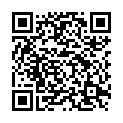|
|
|
| Module code: KI720 |
|
|
4V (4 hours per week) |
|
5 |
| Semester: 1 |
| Mandatory course: yes |
Language of instruction:
German |
Assessment:
180-minute written exam
[updated 08.05.2008]
|
KI720 (P222-0065) Computer Science and Communication Systems, Master, ASPO 01.04.2016
, semester 1, mandatory course
PIM-WN25 Applied Informatics, Master, ASPO 01.10.2011
, semester 1, optional course, not informatics specific
|
60 class hours (= 45 clock hours) over a 15-week period.
The total student study time is 150 hours (equivalent to 5 ECTS credits).
There are therefore 105 hours available for class preparation and follow-up work and exam preparation.
|
Recommended prerequisites (modules):
None.
|
Recommended as prerequisite for:
KI833 Traffic Control and Traffic Management
KI851 Automotive Engineering
[updated 29.07.2015]
|
Module coordinator:
Prof. Dr. Horst Wieker |
Lecturer:
Prof. Dr. Horst Wieker
[updated 01.04.2003]
|
Learning outcomes:
Students will learn how the most important protocols in public networks function and how they are used. Based on the knowledge acquired, students will be able to analyse and develop relationships and interactions between individual network protocols.
[updated 08.05.2008]
|
Module content:
Protocols traditionally play a key role in communications technology. They are regarded as central components of the software used in communications devices. Protocols are standardized procedures and rules for exchanging data between communications systems. They include descriptions of the interfaces, data formats, timing and error-correction procedures.
The following protocol standards will be dealt with in detail:
1. Routing protocols
2. SNMP
3. SIP
4. RADIUS
5. H.323
6. SS7
7. SCCP, ISUP, TCAP, INAP
8. SS7 in mobile networks
[updated 08.05.2008]
|
Recommended or required reading:
SUGMUND G., Technik der der Netze
HALSALL F, DataCommunications, Computer Networks and Open Systems
EBERSPÄCHER J., et al, GSM, Global System for Mobile Communication
WALKE B, Mobilfunknetze und ihre Protokolle Band 1 + 2
[updated 08.05.2008]
|
Module offered in:
WS 2016/17,
WS 2015/16,
WS 2014/15,
WS 2013/14,
WS 2012/13,
...
|


